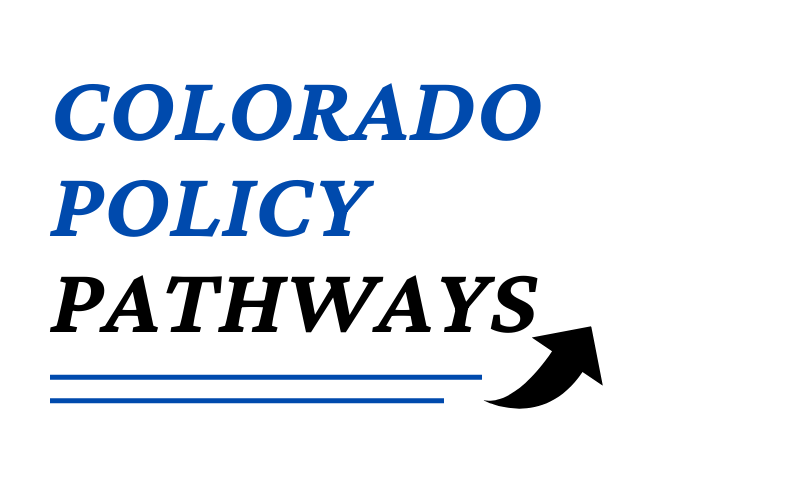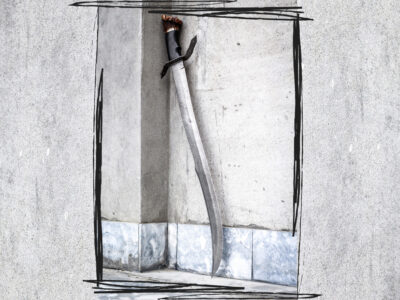Table of Contents[Hide][Show]
I have spent nearly six years seriously considering why the conventional lexicon of public policy fails me. Most jarring was when I represented small business owners in a public forum around a proposed paid family and medical leave program.*
It may surprise people that in such a polarized discussion there actually are a few among the Progressive-Left who engage in earnest. They want to understand what all the consternation is about – especially as there is growing panic coming from small businesses.
While the Left’s public appeal has relied on targeting large corporations as social outcasts, that position becomes untenable when poised against small community-based businesses, making it their Achilles’ Heel. Yet even in off-line, interpersonal conversations with them as peers, I feel as though my explanations fall short. I load too much work on words that can not fully express what this policy does.
My struggle in private with how to explain the competing objectives never seems to deliver anything new. Just the same old logjams. But I am not one to give up easily.
Just what is the artistic fight to express a unique, informed experience all about?
My sister, a fine artist, and I have had endless conversations about rendering versus artistry. They lie on opposite ends of a spectrum. Rendering is closer to copying or recording what you see, while artistry involves more interpretation. It involves deploying skills and the mastery of a craft to choose which features and attributes to bring forward and which to mute. Which to develop and which to lay bare. It is all in an effort to explore and discover new insights. To the artist and the sensitive audience, the process brings a certain amount of joy.
Or at least, that is the objective.
There are infinite connections between the various arts. After all, they are communication but in different forms, using different media. It is about trying to see what is in front of us in new ways and sharing that. And it can be spectacularly messy. As a frustrated policy writer with an unwieldy scope of interest, I am considering a point made by Austin Kleon in his knocking-it-out-of-the-park, simple but inspirational book, Show Your Work.
“Be open, share imperfect and unfinished work that you want feedback on, but don’t share absolutely everything.”
Writing for community
I could easily see the work I am doing as a book-sized project. State experiments establishing government-administered Paid Family and Medical Leave as a social risk management tool is about so much more than just this one policy. The approach is a serious departure that takes us down a dangerous path. One that the drivers of the policy do not fully grasp.
But at this point, when my tangled work is splayed out before me, I wonder why I couldn’t reimagine the lowly blog post as that – imperfect and unfinished. Because from an artist’s point of view, nothing is ever really “finished” until you are willing (or forced to) ship it out the door. And I am slowed by perfectionism. Too often I overwork a draft until I finally beat the life out of my writing. But I must keep driving toward better and better ways of saying it.
Building a lexicon. It’s more than just words.
As I pay attention to the growth of artists that I admire, I can see how each published work allows them to express what they see and think more succinctly. Over time or together, these provide the recipient or audience with a much more complete whole. As my sister claims, there’s a point that she is working toward where a piece of art “works.” Perhaps she actually feels it.
I think it must take years of experience to gain command of that sensation, “it works” – to know where it is or how close or far away you are from it at any one time. But zooming out and surveying the body of work of someone you admire gives you a sense of their growth process.
I have three books from one policy author that I am reading concurrently – published from 2001 through 2011. They are all on the same topic, but each time he covers it a bit differently. I go back and forth from one to the other. Interwoven, I can see how his themes developed over the ten years, each time becoming more clear and more insightful. There are so many interdependent layers. It is fascinating.
Why it all matters: the peculiar broken nature of public policy
In my experience working with the different interests (or “stakeholders”) in the world of policy – from the media’s efforts to convey it to the general public, to the backroom discussions of detailed, arcane rules – the siloed and unadaptable language adds too many barriers. And ultimately, all of it is failing us at a terrible time. The Progressive-Left is determined to fall back on laws rather than social institutions to build the infinite bridges between economic and social policy, an approach that ironically, leaves us more fragile, not less.
Economists have their lexicon, lawyers have theirs, and lobbyists and politicians working at the Capitol have theirs. But small businesses stand alone on the front lines, fixing hot water heaters, towing our stranded cars, and mending our minds and bodies with deft expertise, terrific food, and hospitality. They build trust relationships directly with their community as peers in infinite personal contexts. And today, the gap is growing unsustainable between the regulatory world, the work product of lawyers influenced by special interests, elected and unelected officials, and politicians, and, on the other side, the businesses and creators doing their best to serve us every day as we carry on, living our wildly different and complicated lives.
Taking up the sword. Every single day.
I will keep trying to define the gap, understand what is broken, and continue the fight to build insights that help us to better recognize options that have not yet been considered. It is an amorphous battle that I wage every single day both in my thinking and my writing. But I will also make a concentrated effort to share more openly a process that all of us need to consider. Our successes and failures are linked together. Perspectives from all the smaller domains of expertise and life experience should engage in our current challenges.
To close, I will share this. I have typically shied away from politics and am an obsessive policy wonk, but they are hopelessly intertwined. This opening paragraph from Jarol Manheim’s book, Biz War, strikes me as a perfect reason to keep fighting for clarity and insight, as frustrating and endless as that struggle may seem. We must always land on our feet.
Every so often in American politics there comes a point in time, a moment of pristine clarity – be it a decade, a year, a month, or even a day – when everything changes or more correctly, when changes that have been underway for a long time are suddenly crystallized by events, by experience, or by some insight. Some portion of the political world reorganizes itself. And for those caught in the refracted light of the new era, nothing is ever the same again.
Jarol B. Manheim, Biz-War and the Out-of-Power Elite, The Progressive-Left Attack on the Corporation, first published 2004
*The Colorado FAMLI Task Force met for six months and delivered a report to lawmakers and the Governor in January 2020.



 Blind contour drawing – a journey to embrace process.
Blind contour drawing – a journey to embrace process.